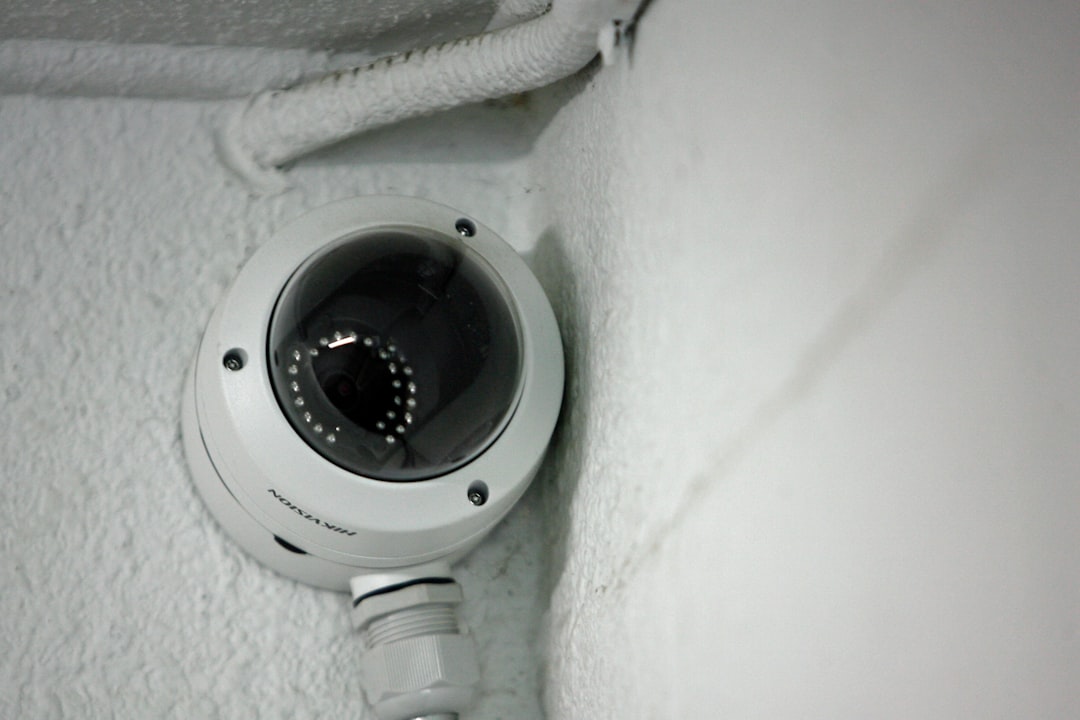Providing care at home for palliative patients can be a challenging but rewarding experience. Palliative care focuses on providing comfort and support to individuals who are facing life-limiting illnesses. It aims to improve the quality of life for patients and their families by addressing their physical, emotional, and spiritual needs. Carers at Home has been providing palliative care for 18 years and below we list our top 10 tips.:
1. Communicate effectively: Effective communication is crucial when providing palliative care at home. It is important to listen to the patient and their family members, understand their needs and preferences, and communicate openly and honestly about the patient’s condition and treatment options. Make sure to keep the lines of communication open and provide updates regularly.
2. Create a comfortable environment: Creating a comfortable and peaceful environment can help palliative patients feel more relaxed and at ease. Make sure the patient’s room is clean, organised, and free of clutter. Consider adding personal touches such as photographs, favorite books, or soothing music to create a calming atmosphere.
3. Manage pain and symptoms: Pain and other symptoms can be a major source of distress for palliative patients. It is important to work closely with the patient’s healthcare team to develop a plan for managing pain and symptoms effectively. This may include medications, non-pharmacological interventions such as massage or acupuncture, and other treatments to improve the patient’s comfort and quality of life.
4. Provide emotional support: Palliative care can evoke a range of emotions for patients and their families, including fear, sadness, anger, and anxiety. It is important to provide emotional support and reassurance to help patients cope with their feelings. Encourage patients to express their emotions, offer a listening ear, and provide comfort and understanding during difficult times.
5. Foster a sense of dignity and respect: Palliative patients may feel vulnerable and dependent on others for their care. It is important to treat patients with dignity and respect, honoring their wishes and preferences and empowering them to make their own decisions about their care. Encourage patients to participate in decision-making and express their values and beliefs.
6. Offer spiritual support: Spiritual care is an important aspect of palliative care, as many patients turn to their faith for comfort and solace during difficult times. Offer spiritual support by providing access to clergy or spiritual leaders, encouraging patients to engage in prayer or meditation, or creating a sacred space for reflection and spiritual connection.
7. Encourage social interaction: Social isolation can be a common issue for palliative patients, as their illness may limit their ability to engage with others. Encourage patients to stay connected with family and friends, participate in social activities, or join support groups to combat feelings of loneliness and isolation. Social interaction can provide emotional support and improve the patient’s quality of life.
8. Take care of yourself: Providing care for palliative patients can be emotionally and physically demanding. It is important to take care of yourself and prioritise your own well-being to prevent burnout and compassion fatigue. Make time for self-care activities such as exercise, relaxation, and hobbies, and seek support from family, friends, or support groups when needed. Carers at Home provide respite palliative care for many clients.
9. Educate yourself: Palliative care is a specialised field that requires knowledge and skills to provide effective care to patients. Educate yourself about palliative care principles, symptom management, communication strategies, and end-of-life care to enhance your caregiving abilities. Stay informed about the patient’s condition and treatment options, and consult with healthcare professionals or palliative care experts when needed.
10. Seek help when needed: Providing care at home for palliative patients can be overwhelming at times. Do not hesitate to seek help from healthcare professionals, palliative care specialists, or support services when needed. Reach out to your healthcare team for assistance with pain management, symptom control, emotional support, or respite care to ensure the best possible care for the patient.
In conclusion, providing care at home for palliative patients requires compassion, empathy, and dedication to meeting the physical, emotional, and spiritual needs of patients and their families. By following these top 10 tips for providing palliative care at home, caregivers can create a supportive and comforting environment for patients to live their final days with dignity and peace. Remember that palliative care is about focusing on the quality of life, providing comfort and support, and honoring the patient’s wishes during their end-of-life journey.
For more information visit:
Carers at Home
https://www.carersathome.com
01483 899 350
37/38 Bridge Street, Godalming, Surrey
Carers at Home was established in 2007 to provide home care in Godalming and the surrounding areas, Carers at Home is a care agency now specialising in providing home care in Surrey and Hampshire and live in care across the south of England including Kent, East Sussex, West Sussex, Berkshire, Oxfordshire, Buckinghamshire, Hertfordshire and Wiltshire.
Carers at Home care agency provides assistance to people allowing them to remain living at home. Clients are given the extra help they need in maintaining their everyday life.
Carers at Home’s experienced and well trained staff offer home care, live-in care and companionship which allows people to live a normal and happy life in the comfort of their own home.
Carers at Home’s home care and live-in care services promote independence. It’s at home where quality of life is enhanced without the stress of interrupting routines and changes in daily habits. Companionship is as important as health care, helping to enable clients to remain independent
The most common CQC regulated home care and live-in services Carers at Home provides for clients include help with getting up and/or going to bed, washing, bathing/showering, meal preparation and diet monitoring. For many clients we will prompt or administer their prescribed medication.
Other non-medical services include; light housework, cooking, laundry, shopping and errands. It’s often the little things in life that some of our clients miss and need the most however.
Companionship and human interaction are among our most important duties. Just chatting or reading to a client helps them not to feel isolated from everything that’s going on around them.
Carers at Home provides CQC regulated home care and live-in care and support services to seniors, people with disabilities or special needs, people coping at home after hospitalisation or illness, or anyone requiring help in the home.
Home care services can be arranged for a few hours a week or everyday, sometimes four times a day. Short term respite relief or longer term care is available seven days a week or live-in care, including public holidays.
• Senior Citizens
• People with disabilities
• People with special needs
• Patients recovering from a hospital visit
• Patients recovering from an illness
• Anyone requiring help in the home
• A few hours a week
• A few days a week
• Seven days a week
• Several times a day
• Short term
• Long term
• Bank holiday
To learn more visit www.carersathome.com or call Carers at Home Godalming on 01483 899 350 of Carers at Home Odiham on 01276 748 270
Providing care at home for palliative patients can be a challenging but rewarding experience. Palliative care focuses on providing comfort and support to individuals who are facing life-limiting illnesses. It aims to improve the quality of life for patients and their families by addressing their physical, emotional, and spiritual needs. Carers at Home has been providing palliative care for 18 years and below we list our top 10 tips.:
1. Communicate effectively: Effective communication is crucial when providing palliative care at home. It is important to listen to the patient and their family members, understand their needs and preferences, and communicate openly and honestly about the patient’s condition and treatment options. Make sure to keep the lines of communication open and provide updates regularly.
2. Create a comfortable environment: Creating a comfortable and peaceful environment can help palliative patients feel more relaxed and at ease. Make sure the patient’s room is clean, organised, and free of clutter. Consider adding personal touches such as photographs, favorite books, or soothing music to create a calming atmosphere.
3. Manage pain and symptoms: Pain and other symptoms can be a major source of distress for palliative patients. It is important to work closely with the patient’s healthcare team to develop a plan for managing pain and symptoms effectively. This may include medications, non-pharmacological interventions such as massage or acupuncture, and other treatments to improve the patient’s comfort and quality of life.
4. Provide emotional support: Palliative care can evoke a range of emotions for patients and their families, including fear, sadness, anger, and anxiety. It is important to provide emotional support and reassurance to help patients cope with their feelings. Encourage patients to express their emotions, offer a listening ear, and provide comfort and understanding during difficult times.
5. Foster a sense of dignity and respect: Palliative patients may feel vulnerable and dependent on others for their care. It is important to treat patients with dignity and respect, honoring their wishes and preferences and empowering them to make their own decisions about their care. Encourage patients to participate in decision-making and express their values and beliefs.
6. Offer spiritual support: Spiritual care is an important aspect of palliative care, as many patients turn to their faith for comfort and solace during difficult times. Offer spiritual support by providing access to clergy or spiritual leaders, encouraging patients to engage in prayer or meditation, or creating a sacred space for reflection and spiritual connection.
7. Encourage social interaction: Social isolation can be a common issue for palliative patients, as their illness may limit their ability to engage with others. Encourage patients to stay connected with family and friends, participate in social activities, or join support groups to combat feelings of loneliness and isolation. Social interaction can provide emotional support and improve the patient’s quality of life.
8. Take care of yourself: Providing care for palliative patients can be emotionally and physically demanding. It is important to take care of yourself and prioritise your own well-being to prevent burnout and compassion fatigue. Make time for self-care activities such as exercise, relaxation, and hobbies, and seek support from family, friends, or support groups when needed. Carers at Home provide respite palliative care for many clients.
9. Educate yourself: Palliative care is a specialised field that requires knowledge and skills to provide effective care to patients. Educate yourself about palliative care principles, symptom management, communication strategies, and end-of-life care to enhance your caregiving abilities. Stay informed about the patient’s condition and treatment options, and consult with healthcare professionals or palliative care experts when needed.
10. Seek help when needed: Providing care at home for palliative patients can be overwhelming at times. Do not hesitate to seek help from healthcare professionals, palliative care specialists, or support services when needed. Reach out to your healthcare team for assistance with pain management, symptom control, emotional support, or respite care to ensure the best possible care for the patient.
In conclusion, providing care at home for palliative patients requires compassion, empathy, and dedication to meeting the physical, emotional, and spiritual needs of patients and their families. By following these top 10 tips for providing palliative care at home, caregivers can create a supportive and comforting environment for patients to live their final days with dignity and peace. Remember that palliative care is about focusing on the quality of life, providing comfort and support, and honoring the patient’s wishes during their end-of-life journey.
For more information visit:
Carers at Home
https://www.carersathome.com
01483 899 350
37/38 Bridge Street, Godalming, Surrey
Carers at Home was established in 2007 to provide home care in Godalming and the surrounding areas, Carers at Home is a care agency now specialising in providing home care in Surrey and Hampshire and live in care across the south of England including Kent, East Sussex, West Sussex, Berkshire, Oxfordshire, Buckinghamshire, Hertfordshire and Wiltshire.
Carers at Home care agency provides assistance to people allowing them to remain living at home. Clients are given the extra help they need in maintaining their everyday life.
Carers at Home’s experienced and well trained staff offer home care, live-in care and companionship which allows people to live a normal and happy life in the comfort of their own home.
Carers at Home’s home care and live-in care services promote independence. It’s at home where quality of life is enhanced without the stress of interrupting routines and changes in daily habits. Companionship is as important as health care, helping to enable clients to remain independent
The most common CQC regulated home care and live-in services Carers at Home provides for clients include help with getting up and/or going to bed, washing, bathing/showering, meal preparation and diet monitoring. For many clients we will prompt or administer their prescribed medication.
Other non-medical services include; light housework, cooking, laundry, shopping and errands. It’s often the little things in life that some of our clients miss and need the most however.
Companionship and human interaction are among our most important duties. Just chatting or reading to a client helps them not to feel isolated from everything that’s going on around them.
Carers at Home provides CQC regulated home care and live-in care and support services to seniors, people with disabilities or special needs, people coping at home after hospitalisation or illness, or anyone requiring help in the home.
Home care services can be arranged for a few hours a week or everyday, sometimes four times a day. Short term respite relief or longer term care is available seven days a week or live-in care, including public holidays.
• Senior Citizens
• People with disabilities
• People with special needs
• Patients recovering from a hospital visit
• Patients recovering from an illness
• Anyone requiring help in the home
• A few hours a week
• A few days a week
• Seven days a week
• Several times a day
• Short term
• Long term
• Bank holiday
To learn more visit www.carersathome.com or call Carers at Home Godalming on 01483 899 350 of Carers at Home Odiham on 01276 748 270









